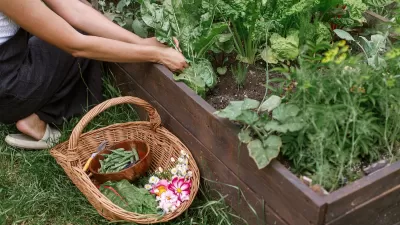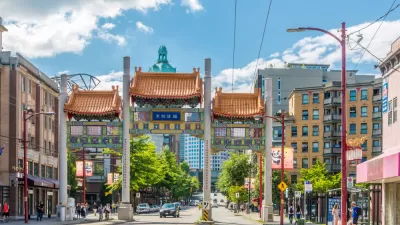Vancouver has the most farmland and farmers in North America. However, as Vancouver booms, the thriving agricultural belt that surrounds Greater Vancouver is at risk from an expanding city.
Vancouver's farmland is passing into a new generation. Many of the region's farms, many at only a few acres in size, are thriving. Crops are selling for a tremendous premium, compared to the cheap imports from international markets that sail in through the city's port. Still, Vancouver's farms are facing increased pressure from the expanding city.
"As distinctive and productive as Vancouver's farms are, they're also under greater threat than any others in the country, because of the fierce competition for land in this region. The competition comes, for starters, from housing subdivisions, with speculation on farmland driving prices as high as $100,000 an acre in some places. This leads to constant friction between farmers and new homeowners unimpressed by the smell of pigs and mushrooms. " writes Vancouver Magazine's Frances Bula. "Equally threatening is the demand to convert agricultural land to industrial use."
Additionally, some worry about the greater picture; British Columbia's over-reliance on cheap, imported food, challenging efforts to give incentives to locally-produced food. Despite the province's ability to grow tremendous amounts of food, much of that crop is exported at a Canadian premium in exchange for cheap, imported food. And, if the port, housing subdivisions, industry, and infrastructure continue to edge their way into previously agricultural lands, the province may find itself less able to produce its own food.
FULL STORY: The Future of Vancouver's Farmland

Planetizen Federal Action Tracker
A weekly monitor of how Trump’s orders and actions are impacting planners and planning in America.

Maui's Vacation Rental Debate Turns Ugly
Verbal attacks, misinformation campaigns and fistfights plague a high-stakes debate to convert thousands of vacation rentals into long-term housing.

San Francisco Suspends Traffic Calming Amidst Record Deaths
Citing “a challenging fiscal landscape,” the city will cease the program on the heels of 42 traffic deaths, including 24 pedestrians.

Amtrak Rolls Out New Orleans to Alabama “Mardi Gras” Train
The new service will operate morning and evening departures between Mobile and New Orleans.

The Subversive Car-Free Guide to Trump's Great American Road Trip
Car-free ways to access Chicagoland’s best tourist attractions.

San Antonio and Austin are Fusing Into one Massive Megaregion
The region spanning the two central Texas cities is growing fast, posing challenges for local infrastructure and water supplies.
Urban Design for Planners 1: Software Tools
This six-course series explores essential urban design concepts using open source software and equips planners with the tools they need to participate fully in the urban design process.
Planning for Universal Design
Learn the tools for implementing Universal Design in planning regulations.
Heyer Gruel & Associates PA
JM Goldson LLC
Custer County Colorado
City of Camden Redevelopment Agency
City of Astoria
Transportation Research & Education Center (TREC) at Portland State University
Jefferson Parish Government
Camden Redevelopment Agency
City of Claremont




























